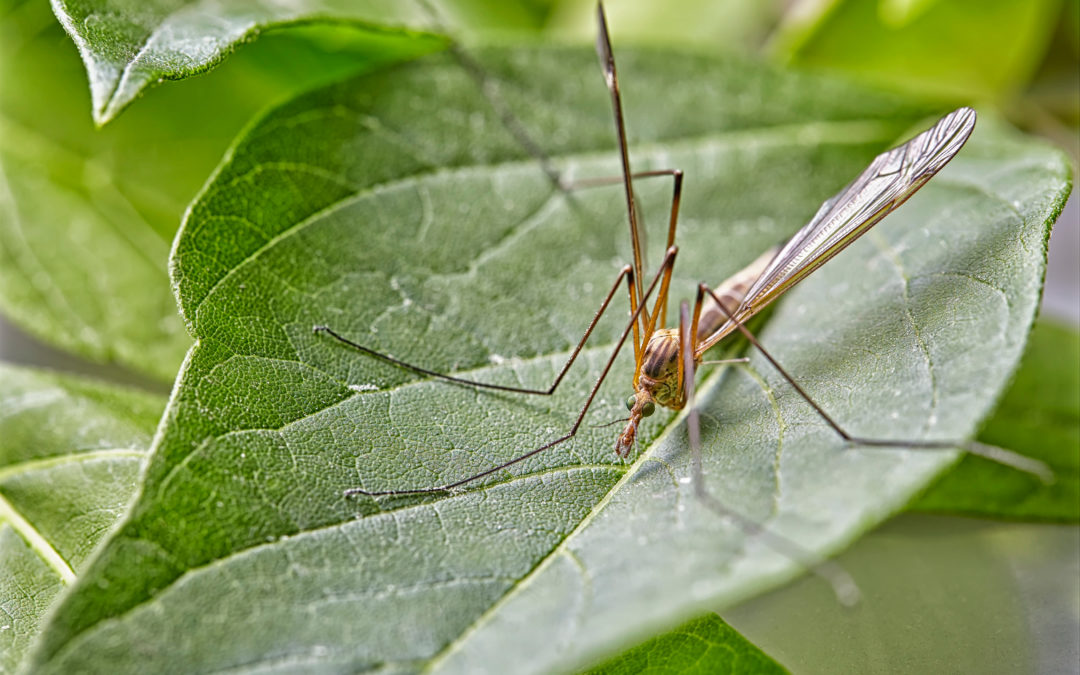A crane fly is an insect within the same family as the mosquito. When people see crane flies, they generally get surprised because they initially think it is an oversized mosquito. Luckily, it is just a gentle crane fly. Unlike mosquito’s, crane flies do not want to suck the blood out of humans. They are not predatorily insects and they do not inflict any painful bites or stings. So how can you better identify these weird insects?
How to identify a Crane Fly?
As mentioned before, they look very similar to the mosquito. Crane fly’s look like larger mosquitos however, their wings are a little different. Mosquito wings have scales on them while crane flies do not. Their colors can vary from brown, tan, and grey. The length of their body is 1 inch in length, which is much bigger than a mosquito.
What do Crane Flies like to feed on?
Adult crane flies do not eat anything. Instead, they rely on the fat reserves that they have built up from their underground larval stage. When crane flies are larva they eat leaves, plants, and small bits off organic material in the soil or water bodies in which they live.
Where can you find Crane Fly habitats?
Crane flies primarily live in aquatic habitats. They will live near bodies of water such as rivers and lakes. They will tend to rest on the trees and other plants in search for mates within the area.
Fun Facts about Crane Flies
- The sole purpose of adult crane flies is to mate and die
- They spend 95 percent of their life in the larval stage. This is where they live underground in either the water or in the soil.
- Their larval stage can last upwards of 3 years.
- They don’t help or hurt humans.
- Their nickname is the mosquito hawk, however, they don’t eat mosquitos
- They don’t carry diseases like mosquito’s do.
- Just like moth’s crane flies are also attracted to light, this explains why they can always be found sneaking into your home.
Are you finding a lot of Crane Flies within your home? Contact us today and get a Free Inspection from U.S. Pest protection. Our professionals will confirm whatever pest you have and provide a solution and service necessary.

